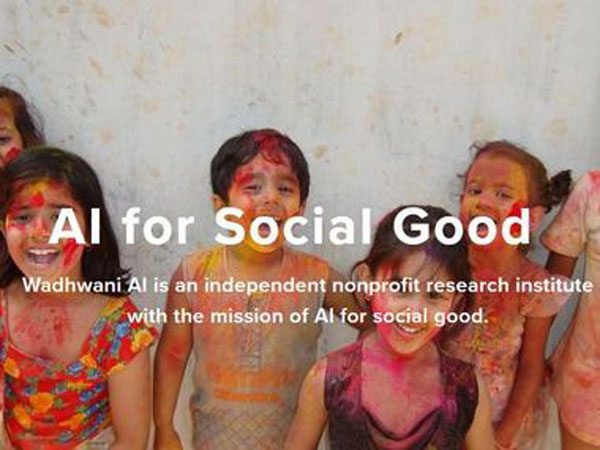
February 21, 2018; Devex
Just as Elon Musk leaves the AI nonprofit (OpenAI) he created, two other billionaires have created their own foundation to develop AI-based solutions to help the underserved and universities in developing countries offer coursework in AI. Catherine Cheney, a Senior Reporter for Devex who covers the role of technology and innovation in achieving the Sustainable Development Goals, recently wrote about the rise of AI in global development and now reports on the founding of the Wadhwani Institute for Artificial Intelligence (WIAI).
WIAI is the new $30 million philanthropic effort by the Wadhwani brothers, Romesh Wadhwani and Sunil Wadhwani, entrepreneurs of Indian origin living in the US. The Institute’s mission is to conduct research in AI, ML (machine learning), Data Science and related areas that will address societal challenges in a variety of domains including (but not limited to) education, health, infrastructure, and agriculture. The Institute’s team of scientists will conduct their research in collaboration with MIT, Stanford, University of Southern California, NYU, University of Washington, CMU, Alan Turing Institute, IIT Bombay, IIT Madras, and IIT Delhi, among other institutions, NGOs, and businesses working in the AI field. Based in Mumbai, the Institute will initially address opportunities for research on societal impact in India. The Indian state of Maharashtra will provide a test bed for piloting early projects.
Within the next two to three years, the goal is to have 30 to 50 researchers working full time on leveraging AI to “improve the quality of life for the bottom 2 billion in the world,” Sunil Wadhwani told Devex.
Sign up for our free newsletters
Subscribe to NPQ's newsletters to have our top stories delivered directly to your inbox.
By signing up, you agree to our privacy policy and terms of use, and to receive messages from NPQ and our partners.
Cheney offers more information about the brothers and their intentions.
Based in Pittsburgh, Pennsylvania, Sunil Wadhwani is the founder of the Wadhwani Initiative for Sustainable Health, or the WISH Foundation, which focuses on bringing primary health care to underserved populations. And based in Silicon Valley, Romesh Wadhwani recently joined the Giving Pledge, and his foundation, which focuses on skills and entrepreneurship, is part of a new model for collaborative philanthropy. The nonprofit resulted from a conversation the Wadhwani brothers had about how the rapid advances in AI were not benefiting the people they aim to serve through their own foundations.
“No one in the world seems to be actually using these very powerful technologies to accelerate social development and address society’s greatest challenges,” Sunil Wadhwani told Devex on Wednesday. “There are isolated researchers working on this…but nowhere in the world is there an institution where there is a critical mass of researchers focused on social good.”
Speaking at the inaugural function of Wadhwani Institute for Artificial Intelligence, India Prime Minister Narendra Modi said that artificial intelligence should be used for improving life for humans, instead of making them redundant. As explained by NPQ in 2016, Musk helped to create OpenAI to counter the potential of AI becoming an existential threat, let alone forgetting the needs of those displaced by AI. OpenAI promotes a friendly AI meant to benefit everyone. WIAI follows a similar path by focusing on AI intentionally making breakthrough advances in areas like healthcare, agriculture, education, and transportation.
As computers increasingly behave like humans, it is imperative that all sectors of society ensure that AI is used and designed responsibly. As WIAI helps academia, government, social sector organizations, and other research institutions skill-up for an AI-powered world that serves humans, they would do well to add humanities to the disciplines of science, technology, engineering, and math.—Jim Schaffer













